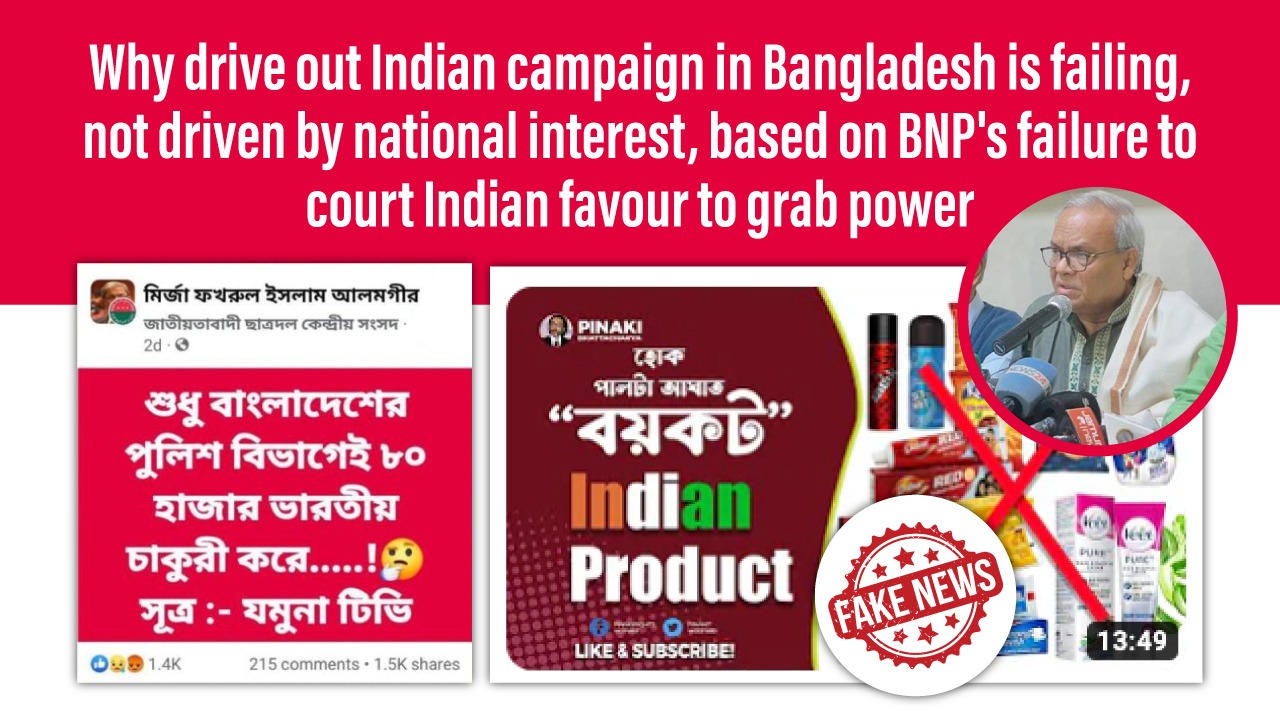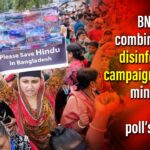At a press conference when Ruhul Kabir Rizvi took a dig at India and claimed “India wants weak democracy in Bangladesh”, the senior BNP leader was echoing the tone of the country’s first military dictator General Ziaur Rahman, who founded Bangladesh Nationalist Party (BNP).
The rise of Gen Zia as the president who capitalized on the bloody massacre in 1975, marked the beginning of playing anti-India card as part of state sponsored mechanism, influenced very much by Pakistan style military rule.
Now four decades down the line, as BNP has been run at the directives of Zia’s son Tarique Rahman, the legacy of stoking anti-India sentiments has remained intact with Jamaat, an outfit that opposed the country’s independence allying with Pakistan. After rejected by the voters in the January 7 polls, the same combine has chosen to deflect attention: fanning boycott India campaign to hide their failure to ensure zero turnout in polls.
Lets take a look at how BNP leaders frantically begged for Indian support
Years ahead of polls, the same BNP leaders were found rushing to India and begging for support in favour of their demand to grab power without polls. While Indian authorities kept reiterating their stance to back the public mandate in Bangladesh, BNP leaders went hell bent on claiming their means of thwarting polls is justified and no battle of ballot is required to usurp power.
Months before the polls in November, Iqbal Hasan Mahmud, a member of the BNP’s standing committee, made a visit to India and pleaded for Indian support.
In October, another group of BNP leaders including Mirza Fakhrul Islam flew to Singapore and met Indian officials seeking support in their bid to remove the government without polls. On the other hands, several BNP leaders including Tarique gave interviews to Indian journalists selectively to catch attention for policymakers but to no avail.
How BNP Jamaat is fanning drive out India campaign
Sensing India’s stance for accepting public mandate, BNP Jamaat combine, weeks leading up to polls, started spewing anti-India campaign to cover up outright public rejection. And days after the polls, as India, alongside several nations, accepted the public mandate, same leaders of BNP Jamaat combine launched drive out India campaign what observers see devised to hide defeat.
The overwhelming public mandate against BNP Jamaat combine for last two decades since 2008 is the singular marker that the campaign has fell flat.
Lets take a look at smears in boycott India campaign
Bangladesh becomes fourth largest destination for Indians to earn remittance, an outright lie peddled by BNP Jamaat handles without any sources while all indexes show otherwise.
80% Indian citizens are employed in Bangladesh police force, another faux pass that independent fact-checkers already flagged as concern.
India propped up Awami League, the mostly used churn, ignoring the fact that 50 million voters cast ballots that made Awami League come to power
Indians taking away Bangladesh jobs, another lie that youth forces are well aware of Bangladeshis started boycotting Indian products, though widely circulated but reality is completely different as reported by local media.
Sheikh Hasina gave up Bangladesh’s sovereignty to India, while reality is the largest number of gains for the country has been achieved under the premier, thanks to her persuasive diplomacy. Bangladesh won maritime dispute over India and even land boundary agreements were resolved, thanks to her deft diplomacy.
Historic genesis of anti India campaign in Bangladesh
All the ten years of BNP’s state rule under Gen Zia’s widow Begum Zia has failed to sign a single bilateral deal with India, depriving the country of several benefits. Even the current chief of BNP Tarique, who ran a parallel government in the last stint of his mother, held ties with several transnational terrorist groups including ULFA. One cannot forget former BNP chairperson Khaleda Zia’s infamous remarks: “If Awami League comes to power, from Feni onwards, Bangladesh will become part of India.” But people to people diplomacy scaled up to a new height.





